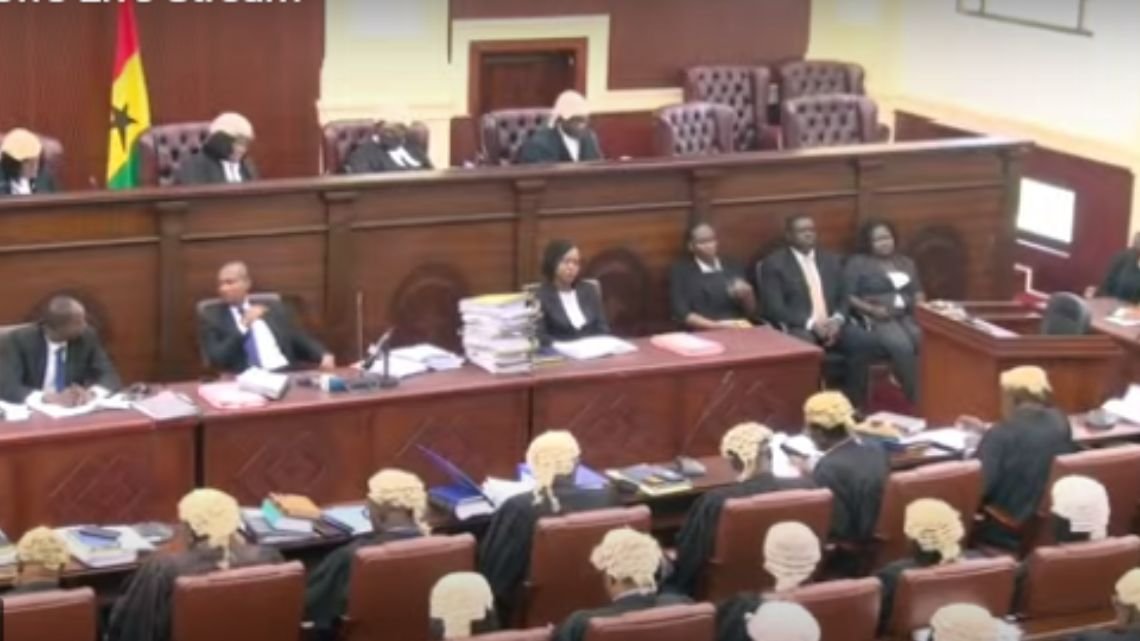The Supreme Court has rejected an application from the Speaker of Parliament seeking to have Justice Ernest Gaewu recuse himself from a panel tasked with hearing a case regarding the Speaker’s authority to declare four parliamentary seats vacant.
Represented by his legal team, the Speaker argued for the court to nullify a previous ruling that directed him to suspend his October 17 decision declaring the seats vacant.
During the hearing on Wednesday, October 30, counsel for the Speaker, Thaddeus Sory, raised concerns over Justice Gaewu’s involvement in the case, claiming that his past as a parliamentary candidate for the governing New Patriotic Party (NPP) in the Volta Region could compromise his impartiality in a matter potentially impacting the party.
Mr. Sory argued that Justice Gaewu’s political ties to the NPP could affect his judgement in the case, given the party’s potential stake in the outcome.
However, the court dismissed this application, allowing Justice Gaewu to remain on the panel.
“He was known to be associated with the New Patriotic Party (NPP), and in fact he was a parliamentary candidate in one of their constituencies in the Volta Region,” Thaddeus Sory argued.
But the apex court says the law does not bar one from serving as a judge of the Supreme Court because they belonged to a particular political party.
In her ruling, the Chief Justice highlighted that once a nominee is vetted and approved by Parliament, it indicates they are qualified to preside over cases of this nature.
She noted that the court already includes a former General Secretary of the People’s National Convention (PNC) and an ex-parliamentary candidate from the National Democratic Congress (NDC), underscoring the nonpartisan capacity of judges despite prior political affiliations.
The case at hand addresses the Speaker’s declaration that several seats in Parliament were vacant due to Members of Parliament (MPs) shifting their political allegiance. According to Article 97(g)(h) of the Constitution, MPs who align with a different political party than the one on whose ticket they were elected are considered to have vacated their seats.
Following the Speaker’s decision on October 17, 2024, the prior Majority caucus lost members, making it the Minority, while the previous Minority caucus became the Majority.
Alexander Kwamena Afenyo-Markin, Leader of the New Patriotic Party (NPP) caucus, subsequently filed a case with the Supreme Court to seek an interpretation of Article 97.
The court granted a temporary stay on the Speaker’s ruling until a final judgment on the matter is reached after an ex parte application from Afenyo-Markin.
In response, the NPP caucus boycotted the October 22 parliamentary session, which led the Speaker to adjourn Parliament indefinitely due to insufficient quorum.

